The Pigeon Racing Medicine Cabinet
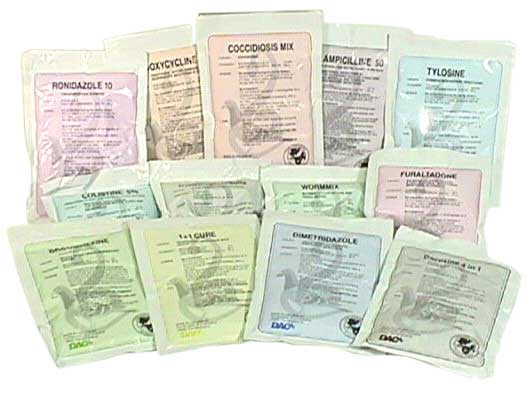 Medicines which the fancier may be wise to stock, and the reasons to use them:
Medicines which the fancier may be wise to stock, and the reasons to use them:
Baytril–a good choice for serious infections, mainly intestinal or systemic. This drug comes in tablet form and individual pigeons can be dosed at 5mg per pigeon per day. Flock treat with the liquid Baytril only (the tablets will not go into solution). Use for 5-10 days.
Do not use during reproduction and rapid growth of squabs.
Amoxicillin–a safer alternative drug to Baytril. It can be used during reproduction and racing without side effects. Not as broad spectrum as Baytril but often very effective in treating serious infections. Comes in tablet form (50mg) which can be used once or twice daily on individual cases. Flock treatment best accomplished using 3grams per gallon for 5-10 days.
Tetracycline drug (Terramycin, Aeuromycin, Tetracycline , or Doxycycline)–good for respiratory infections; best when used in combination with Tylan. One usually has no distinct advantage over the other and they share a common spectrum of activity. With the exception of Doxycycline, they are all available over the counter as poultry preparations. Use 4 teaspoonsful per gallon of the regular strength or 2 teaspoonsful per gallon of the concentrate. Doxycyline is dosed at 500-1000mg per gallon. Use these for 7-14 days.
Tylan–use as mentioned above, in combination with a tetracycline for respiratory infections. Tylan powder is dosed at 1-2 teaspoonsful per gallon. Individual dose at 50 mg per pigeon per day.
Delta Albaplex— this is a veterinary tablet which can be quite useful in treating individual cases of respiratory disease. It contains a tetracycline plus albamycin as well as a small amount of corticosteroid. Use 1/2 tablet twice daily for 3-7 days.
Amprolium— the standby for coccidiosis..treat at 1tsp/gallon of the 20% powder for 3-5 days.
Baycox (Toltazuril)–a newer more effective coccidiostat, not yet avilable in the USA but seems to be available through various channels. Can be used instead of Amprolium. Dose for 1-2 days at 4cc (100mg) per gallon.
Ronidazole (RIdzol)– for trichomonas…this is the safest of the three products commonly used but is not approved for use in this country. 1tsp per gallon for 3-5 days.
Emtryl (Dimetridazole)–for trichomonas…not approved for use in this country. Mexican or Canadian Emtryl dosed at 1/4-3/8 tsp per gallon for 3-5 days. Can cause seizures at higher doses.
Flagyl (Metronidazole)–for trichomonas…25-50 mg per pigeon per day for 1-3 days or 1250-2500 mg per gallon for 3-5 days.
Ivomec (Ivermectin)–wormer–500-1000micrograms(ug) per pigeon. Effective against Capallaria (hairworms) and Tetrameres and Dyspharynx (stomach wall worms); less effective against Roundworms.
Pyrantel pamoate–1-3mg per pigeon (75mg per gallon) for 1-2 days for roundworms only.
Tramisol (levamisole) 1-1.5 grams per gallon for one day for roundworms only.
Panacur (fenbendazole) effective against the three major worms but has potential to cause feather damage. Do not use during reproduction or moult. 5mg per pigeon per day for 3 days.
Quinacrine–antimalarial drug..use only in areas where malaria or Haemoproteus is a problem. Use for 4 weeks before flying season then one day weekly during races. Dosse at 200mg per gallon
There are many other choice available and I’ve kept it to what I consider a minimal, giving choices for some conditions. Not all of these drugs are commonly available. Consult your friendly veterinarian for help in acquiring some of these handy drugs as some are by perscription only.
See also Pigeon Medications Part 2
The Pigeon Racing Medicine Cabinet by Dr. David E. Marx DVM

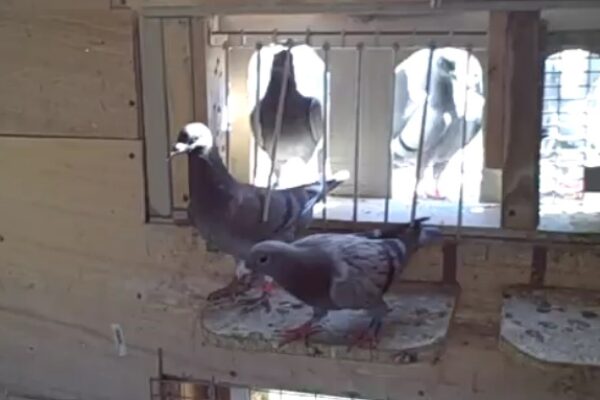
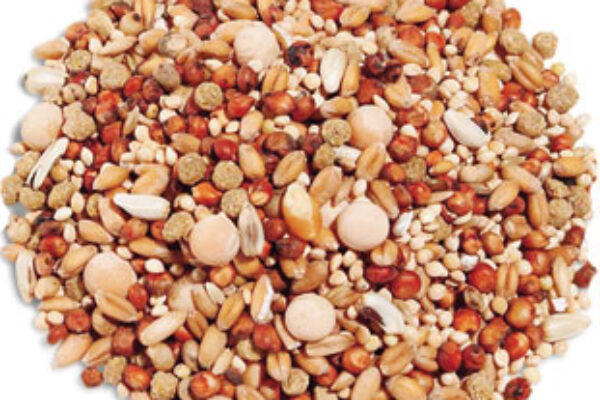
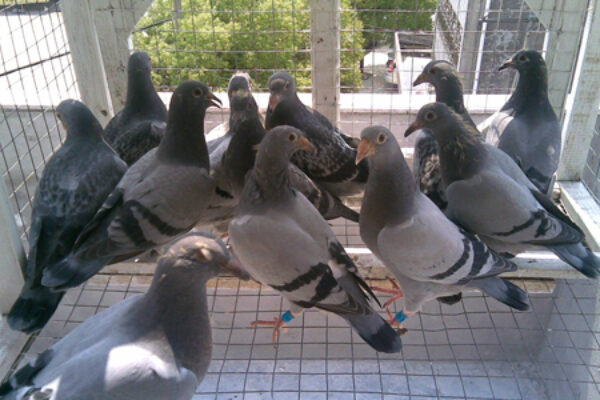
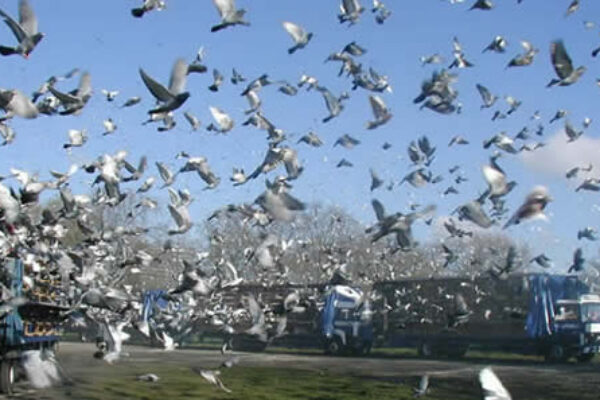

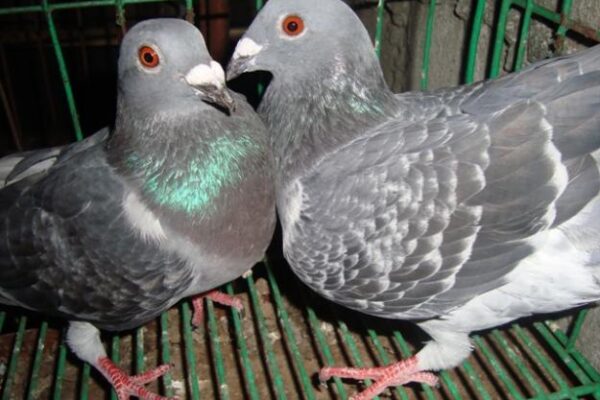
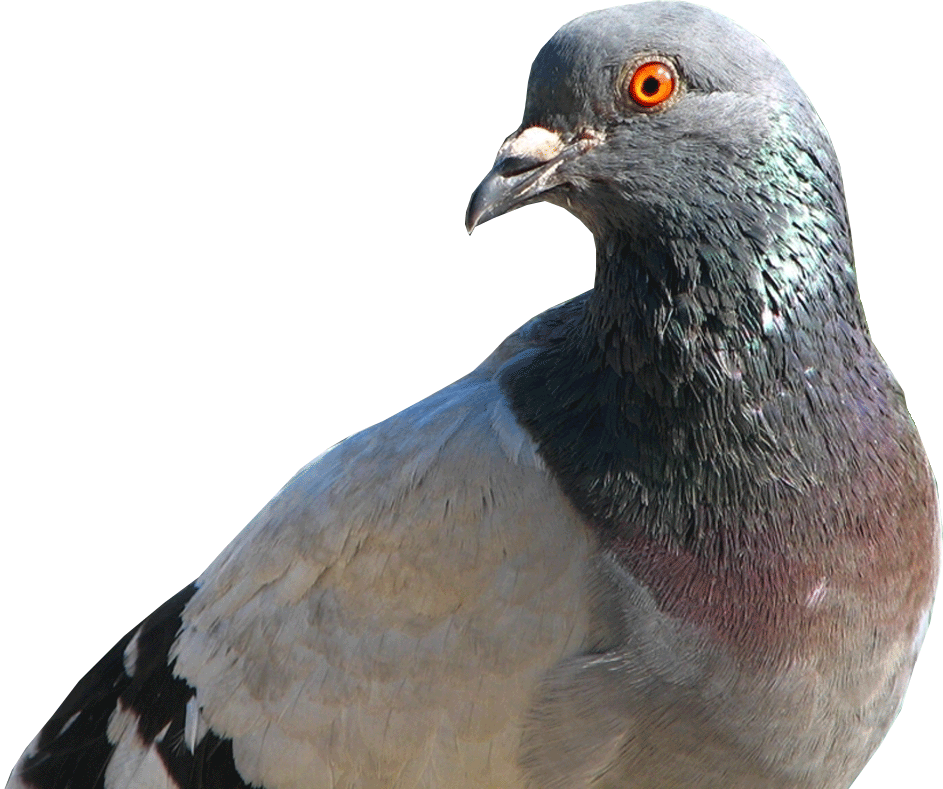
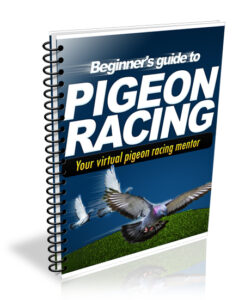
helpfull to everone you are the man.
Helpfull article
hi i want this madicine .how i get this madecine, ple frind…asif
where to purchase medicines for pigeons I live in the pakistan Islamabda
http://www.sampogna.ca or call him toll free @1-888-374-4366
hi dear,
you got pigeons medicine from any vet shop
Helpfull article
where to purchase medicines for pigeons I live in the north east of england
trying to treat birds for paratyphoid because young bird sickness is rampint in ireland just doing it as a precauion
Why would you do that, they are different.Mistreating will do nothing but ruin your birds.If it is YB sickness,Applecider vinegar in the water, and Chisholm Trail mix on the feed.If it’s paratyphiod, treat accordingly.
Nolvasan is a brand name for Chlorhexidine diacetate
Chlorhexidine diacetate is Disinfectant , Bactericide – Virucide
Alan, What are you trying to treat?
would the name nolvasan be the same treatment for birds in ireland if not what would you recomend
I just attended a seminar by Ed Minville in Chicago. He informed everyone that more studies have been done on the use of Nolvasan and Bleach. DO NOT USE IT!!!! You are putting poison into your birds system. If you think it’s good for the birds than you drink it…